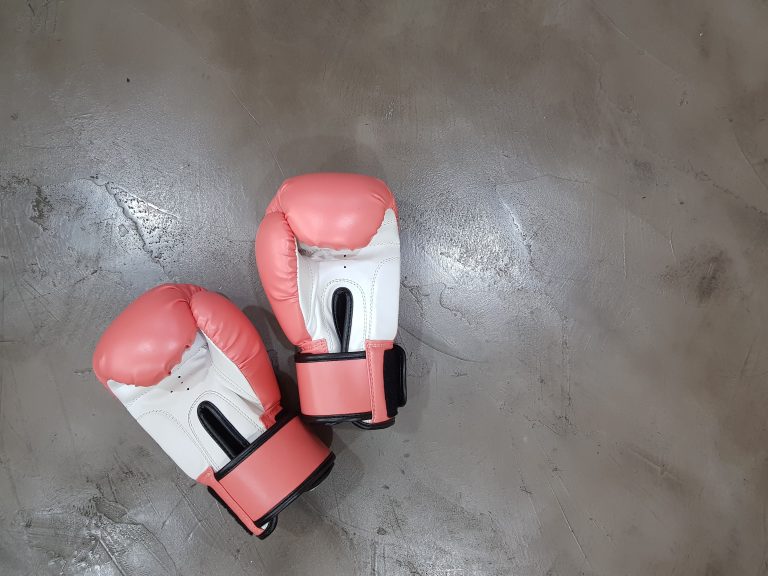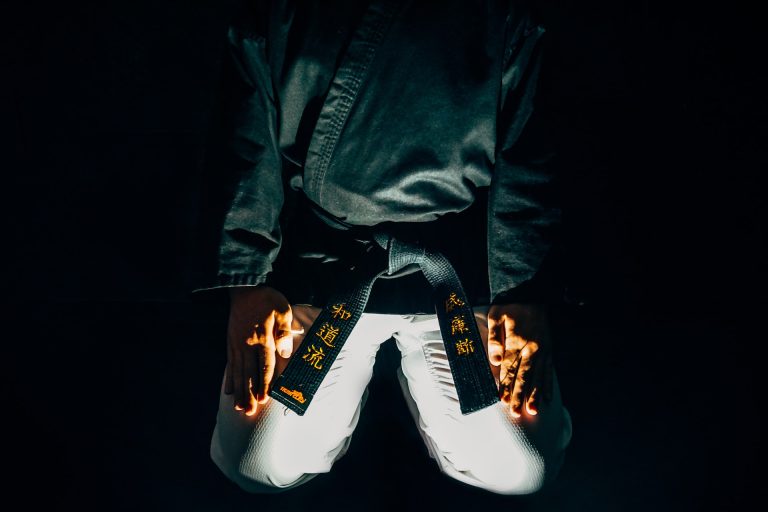Karate Testing Example: Check List and Tips for Success
Karate is not only about breaking boards and learning striking techniques but also about improving oneself and striving to achieve higher ranks through testing. Whether it’s your first belt test or advancing to a new level, testing can be intimidating. However, with a solid understanding of what to expect, the right mindset, and proper preparation, you can pass your karate testing with flying colors. Here is an example of karate testing with a check list and tips for success.
The Overview of Karate Testing
In Karate, testing is the way to prove that you have met the necessary requirements to a higher level in the art. Each dojo may have their own specific requirements, but they generally include a combination of kata, sparring, and techniques. The testing may be done in front of one or more instructors or a panel of judges, and the difficulty may increase as you progress through the ranks.
The Checklist for Karate Testing
To ease your mind and ensure that you’re ready, here is a checklist of things to accomplish before your testing day:
Attend Regular Classes
One of the essential parts of being prepared for Karate testing is attending regular Karate classes. Regular classes help you maintain a consistent training schedule, as you follow a training routine set by your instructor. Attending classes also gives you the opportunity to learn from your peers and receive feedback from your instructor.
Practice your Karate Skills Regularly
Practice is crucial when one is preparing for Karate testing. Practice your fundamental forms, techniques, and combinations, as well as your kata and Kumite. To perform the techniques’ sequences fluidly, practice them rigorously. Dedicate time to improve specific skills, such as kicks or punches, and ask for feedback from your instructors and seniors.
Attend extra Curriculum Programs and Workshops
Your karate dojo might have other programs where you can attend sessions that cover different karate skills. Attending these workshops could offer added benefits that help improve your skills and prepare you for testing.
Understanding the Requirements of Your Karate School
Understanding the requirements of your karate school and style isn’t just about knowing the techniques and forms. It’s also essential to understand how the dojo assesses karate students to progress in the art. Ensure you’re adequately training and guarantee that you mark your progress along the way.
Ask Questions and Seek Advice from Senior Belts or Instructors
It’s always a good idea to ask for and receive advice from senior belts, instructors or other peers who have passed the same test. They may offer essential insights on techniques or program requirements that you might miss otherwise. Any advice coming from upper belts is valuable information to help you mentally prepare and adjusts accordingly.
Get Enough Rest, Nutrition and Hydration
In the testing process, your body might be pushed beyond its natural limits. It’s critical to stay hydrated and nourished to allow your body to regenerate faster. Staying hydrated will help you avoid heat exhaustion and injury, while maintaining a balanced diet could help you pack enough energy for your tests each day.
Tips for Success at Karate Testing
Passing a Karate test requires preparation, discipline, and a mindset tuned for success. Here are some tips to help you ace your testing:
Mental Preparation
Besides solid physical preparation, mental preparation plays a crucial role. Occasional visualisation preparing and connecting with your nerves will allow your brain to accept the testing process without fear interference. Mental preparation is what separates students who pass from those who falter at the last minute.
Stay Calm and Focused
Sometimes, students can feel nervous when it comes to fighting or when they are on their testing path. So, it’s essential to be confident and stay calm. Stay focused on the process you have undergone during the testing: the strikes, the moves, and the body language.
Engage in Controlled Breathing
Practicing controlled breathing techniques helps you to tune out external stimuli and focus on your inner thoughts. Engage in controlled breathing before testing to mentally ready yourself for the training process.
Don’t Panic Over Mistakes
Mistakes are bound to happen, and you should not fret over them. Use slip-ups as learning lessons and concentrate on improving your technique for perfecting it later. Remember that instructors usually understand and expect some errors during testing.
Coach Yourself to Success
Nobody knows your strengths and weaknesses better than you. Coach yourself through mental cues, by repeating the techniques you’ve mastered, and warm up your body for the testing process. Remember to psyche yourself up with self-expressions and minimum self-criticism.
Frequently Asked Questions About Karate Testing
Karate is a highly disciplined martial art that requires years of hard work, dedication, and commitment. Testing is an integral part of karate training, and every student must undergo various tests to progress to the next level. However, many students have several questions about karate testing. This blog post provides answers to some of the most frequently asked questions.
1. What is karate testing?
Karate testing is a formal evaluation process in which a student’s skills and knowledge in karate are assessed. It is an opportunity for students to showcase their progress and demonstrate their technique, form, and understanding of the art. Typically, karate testing includes a combination of written examinations and practical demonstrations, focusing on various aspects of karate, such as kihon (basic techniques), kata (forms), and kumite (sparring).
2. When can I take a karate test?
The timing of karate testing differs from one school to another. However, students can usually take tests after they have trained for a certain period, typically 3 to 6 months, and have mastered the required techniques and forms. Some schools may have a minimum age requirement for their students based on the skill level and grade.
3. What should I expect during a karate test?
Karate testing usually begins with a written examination to assess the student’s knowledge of karate history, terminology, and basic techniques. After the written exam, students usually demonstrate their skills and knowledge through a series of kata performances, kumite sessions, and physical exercises. Each test has a time limit, and students are expected to complete the exam within the allotted time.
4. What is the cost of karate testing?
The cost of karate testing varies depending on the student’s rank and the school’s testing policies. Generally speaking, lower-ranked students are charged less than higher-ranked students. In some cases, schools may offer free testing to students who demonstrate significant effort, dedication and attendance. It is best to check with your karate school for details on their testing fees.
5. How long does it take to receive the test results?
The time taken to receive test results varied from one school to another, but typically it takes a few weeks to a month to receive test results. The results may be announced during a training session, or the student may receive a certificate acknowledging their rank or promotion. Feedback may also be provided during testing to help students work on areas that need improvement.
6. What happens if I fail the karate test?
Failing a karate test can be disappointing, but it is part of the learning experience. If a student fails a test, they are usually given feedback and advice to help improve their skills and knowledge. Students may need to retake the test after a specified period, allowing them to continue practicing and perfecting their technique.
7. How do I prepare for a karate test?
To prepare for karate testing, students should attend regular training sessions and practice consistently. Practicing katas, perfecting their techniques, and sparring to build stamina and endurance helps prepare the students for the test. Students should listen to instructors‘ feedback and work on areas that need improvement. Learning about the karate history and culture, vocabulary, and philosophy can also help in understanding the art’s essence.
8. Do I need sparring gear for the karate test?
Sparring gear is required for kumite during karate testing. The type of gear required depends on the school policies and the student’s rank. It usually includes a mouthguard, groin guard, shin protectors, and gloves. It is best to check the school’s policies before purchasing the gear.
9. What is the highest rank in karate?
The highest rank in karate is the tenth Dan (10th-degree black belt). However, many martial arts schools have a lower ranking system, ranging from six to nine Dans. The ranking system usually begins with white and progresses through yellow, orange, green, blue, brown, and black in increasing order of difficulty.
How to Prepare for a Karate Testing
Karate is an ancient martial art form that originated in Okinawa, Japan. It requires discipline, focus, and dedication to learn and master the techniques. One of the most significant aspects of karate is the testing process. Karate testing is a way to measure your progress and to advance to the next level. If you are planning to take a karate test, this guide will help you prepare. Here are the steps to follow:
Step 1: Know the Requirements
Before you can start practicing for your karate testing, you need to know what the requirements are. Review the requirements for your specific testing level, which will include specific katas, techniques, and combinations to demonstrate. If you are unsure of what you need to practice, ask your sensei or instructor for guidance.
Step 2: Practice Regularly
The key to success in karate testing is regular practice. Make sure that you practice your techniques and katas daily. Dedicate a specific time each day for practice and stick to it. Make sure to practice in a quiet space where you can concentrate and focus on your movements.
Step 3: Test Yourself Regularly
Testing yourself regularly will help you monitor your progress and identify areas for improvement. Use a mirror or record yourself, and compare your performance to the standard requirements. This will help you identify areas where you need to focus more practice.
Step 4: Get Feedback
Ask your sensei or instructor for feedback on your techniques and katas. They will be able to provide you with insights on how to improve your form, timing, and execution. Incorporate their feedback into your practice and work to improve the areas where you need more work.
Step 5: Stay Focused and Confident
Karate testing can be nerve-wracking, but try to stay calm and confident. Continue to practice regularly and remind yourself of your past successes. Visualize yourself performing the techniques and katas successfully during the testing process. Stay focused and calm during the testing, and remember to breathe deeply and relax.
Step 6: Celebrate Your Success
After completing your karate testing successfully, celebrate your achievement. Acknowledge the progress you have made, and the hard work and dedication you have put in. Remember to thank your teachers and fellow students who have supported you along the way.
Conclusion
In summary, karate testing is an essential part of your karate journey. By following these steps, you can prepare effectively and confidently. Remember to practice regularly, test yourself, get feedback, stay focused and confident, and celebrate your success. With dedication and hard work, you can achieve your goals and progress through the ranks of karate.
Inhaltsverzeichnis






